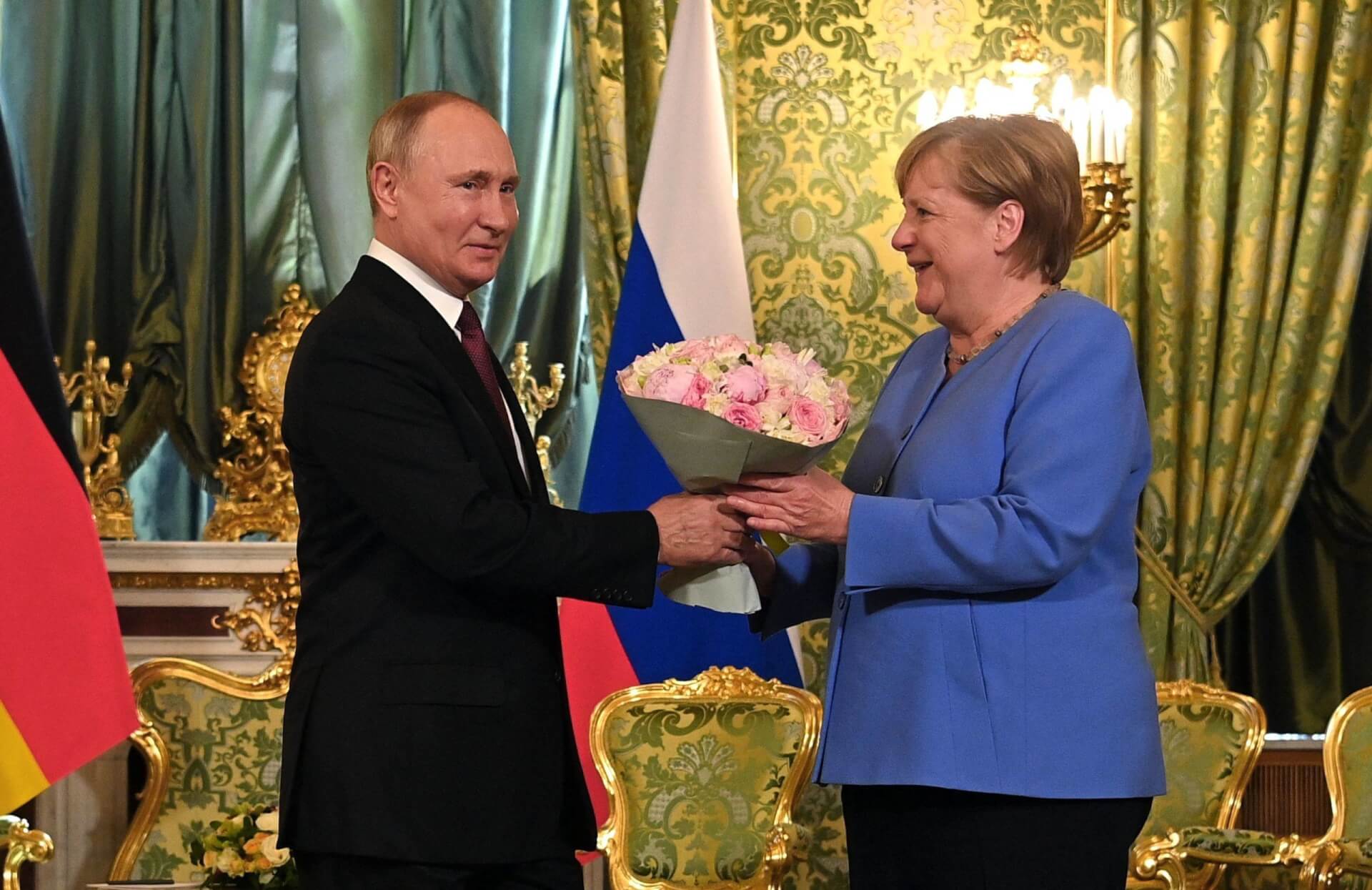German Chancellor Angela Merkel met Russian President Vladimir Putin in Moscow on Friday during her last official visit to Russia before she steps down from her post following elections next month.
In this ‘end-of-era’ meeting, the two leaders discussed bilateral relations, Russian critic Alexei Navalny, and their respective standpoints on the Afghanistan crisis, among other topics.
Merkel struggled to push aside differences and foster better relations with Russia as Putin fundamentally disagreed with some of her demands.
On Alexei Navalny
Banking on democratic values, Merkel urged Putin to release Russian opposition leader and Kremlin critic Alexei Navalny. In response, “the Kremlin leader rebuffed her, saying the jailing was unrelated to politics.”
“He was convicted of a criminal offence, not his political activities,” Putin said, citing a 2014 embezzlement case against Navalny as the primary reason behind his arrest and carefully dismissing Merkel’s and the Euro-American plea for his release.
Navalny was imprisoned for two years after his return to Moscow this year. On August 20, 2020, Navalny suffered a fatal attack, causing a natural halt to his “investigations.” Consequently, he was flown to Germany for medical treatment at his wife’s request and spent five months there. The international community suspects this to be a targeted poisoning by the Russian government. In this regard, on Friday, the United States (US) and the United Kingdom (UK) imposed sanctions on Russian intelligence operatives responsible for the suspected attack.
The global community also criticised his arrest, citing it as the Russian government’s crackdown on dissent. “Russian authorities previously relied on their control of information to stifle criticism, but are now using brute force more to stamp out political challenges and critical voices, including in the media,” according to a report by The Washington Post.
On Afghanistan
Talking about the Afghanistan situation with Merkel, Putin blamed the West for the country’s current tumult. He suggested that the West’s incompetence in ensuring peace has allowed the Taliban to capture the nation. Putin also criticised the West’s attempts to impose their visions of democracy on another country, “based on outside models without taking into account historical, ethnic and religious issues and fully ignoring other people’s traditions.” Earlier, Russia said it seeks to cooperate with the Taliban to ensure Afghanistan’s peace and stability.
Merkel insisted that Putin utilise Russia’s connection with the Taliban to assist vulnerable Afghans who want to resettle outside the country.
On Nord Stream 2
The two leaders also discussed the Nord Stream 2 pipeline for carrying natural gas from Russia to Germany. It is crucial to Merkel, who also travelled to Kyiv post her meeting with Putin.
The pipeline has been contended by the United States, Ukraine and Poland, among others. “Critics say the pipeline threatens European energy security, heightens Russia’s influence and poses risks to Ukraine and Poland in bypassing both countries,” Al Jazeera mentioned in an article.
In the meeting, Putin pushed for the completion of this pipeline, reassuring that Russia would “comply with its obligations on gas transit via Ukraine” by the end of 2024. However, critics suggested that Putin “cleverly” tossed Ukraine’s contentions with the pipeline on “the European Union lap,” which would further place Merkel at crossroads with Ukraine.
The two leaders also discussed other topics, including stabilising Libya and Syria, efforts to help revive the Iranian nuclear deal and developments in Belarus under President Alexander Lukashenko’s authoritarian regime.
Meanwhile, critics have deemed Merkel’s trip to Moscow “fruitless.” They say that the trip gave Russia the upper hand in almost all discussions as Putin skillfully dismissed Merkel’s demands.
Despite the meeting being inconsequential for Germany and the European Union, Merkel retained her stance on the necessity of dialogue with the Russian leader. “During my time, the political systems of Germany and Russia have moved further away from each other,” Merkel said at the Kremlin. “But I’m very pleased that despite big differences, we’ve always managed to keep this channel for talks open.”

